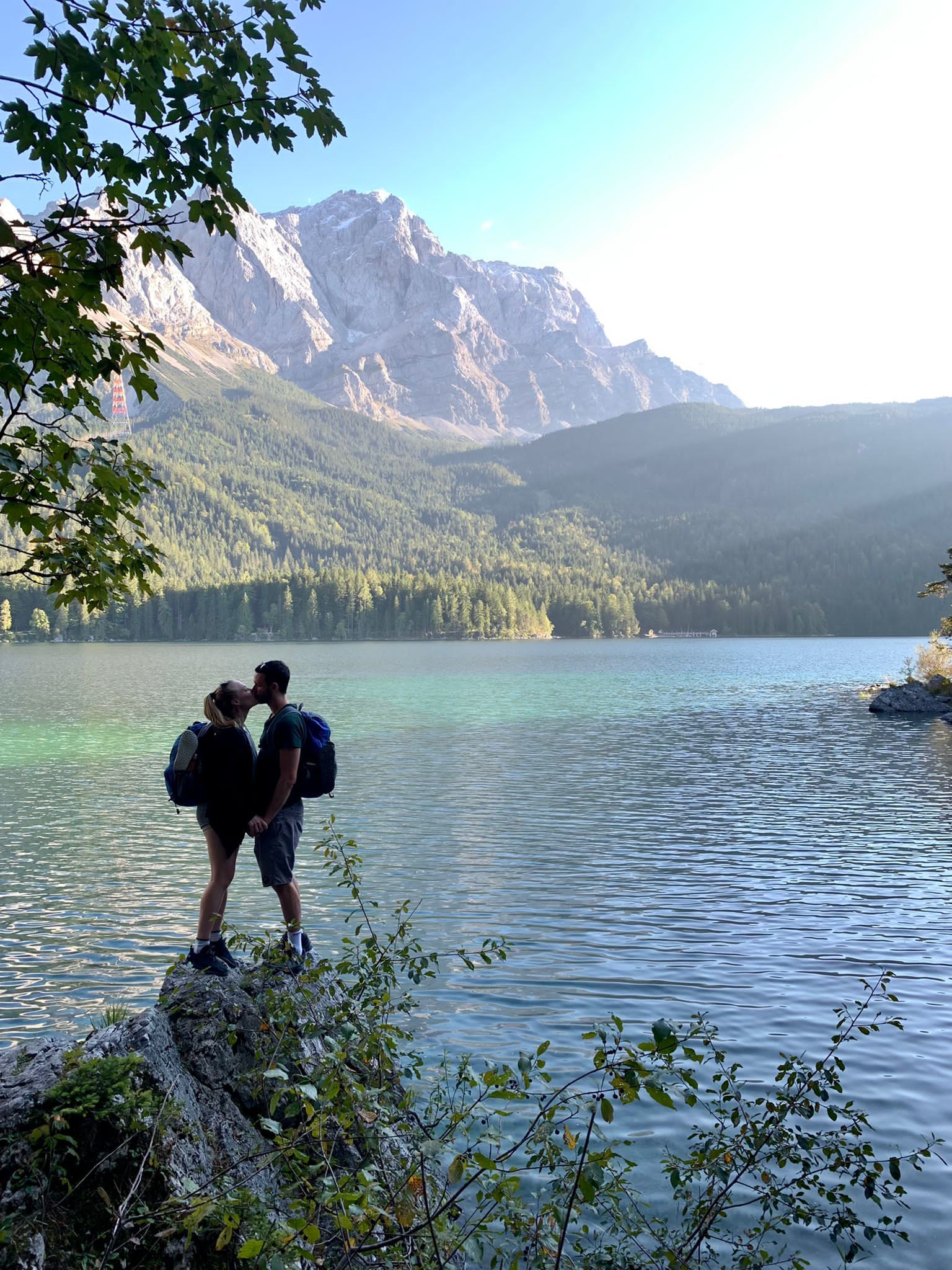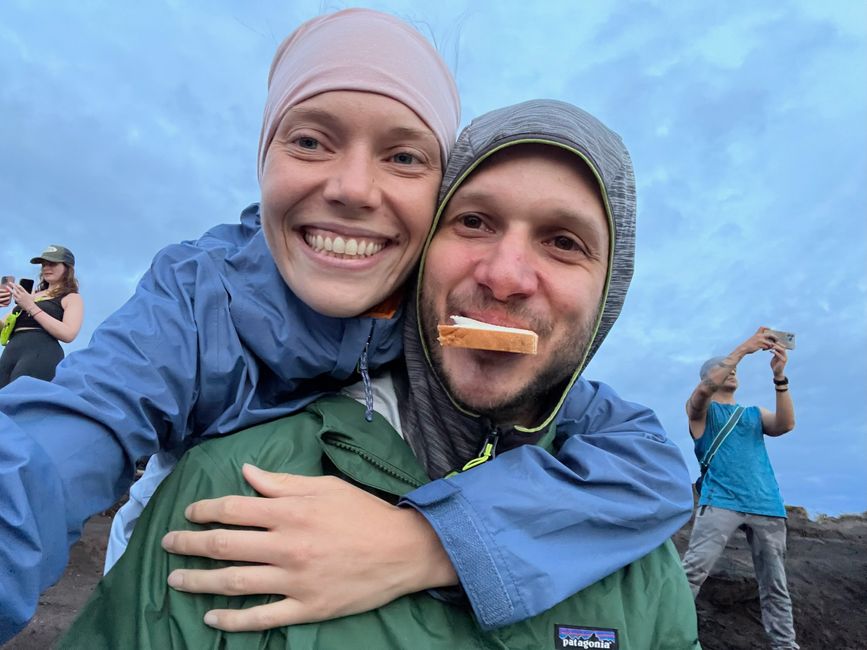Sunshine Coast
প্ৰকাশিত: 27.05.2023
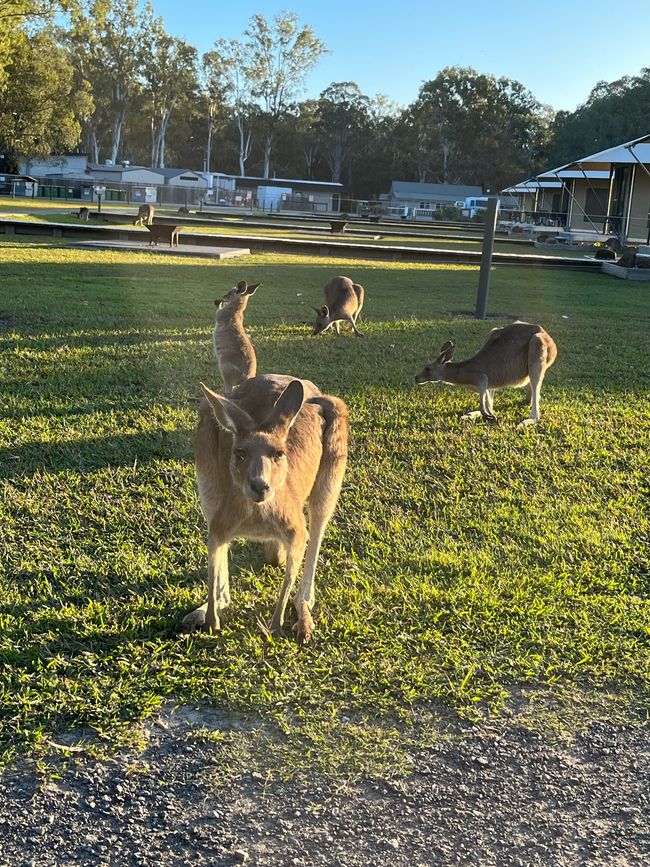
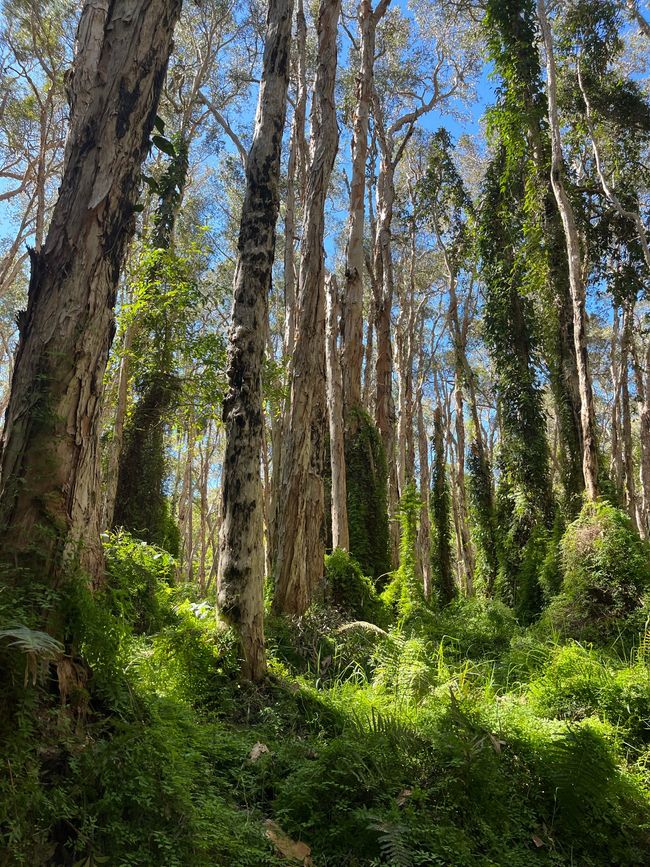
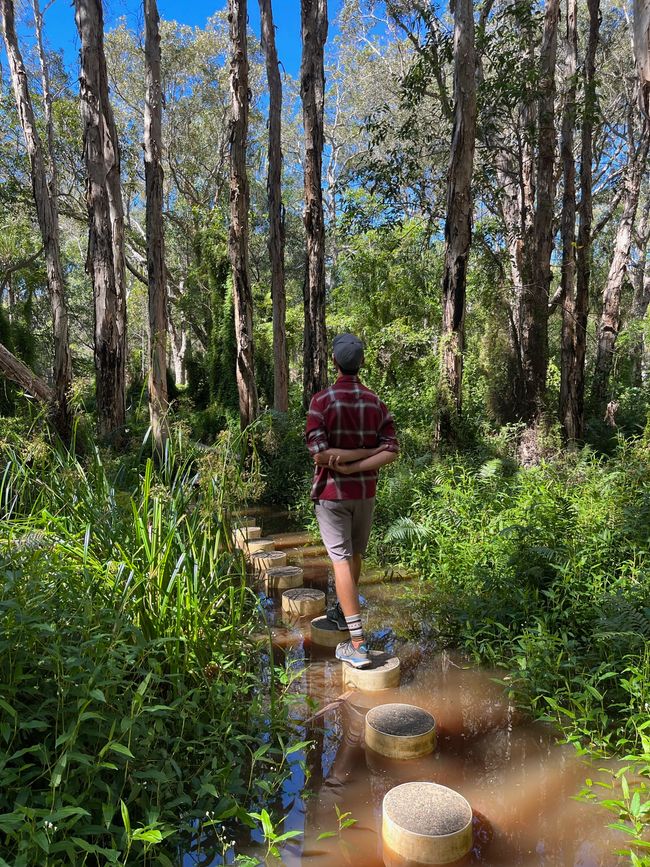
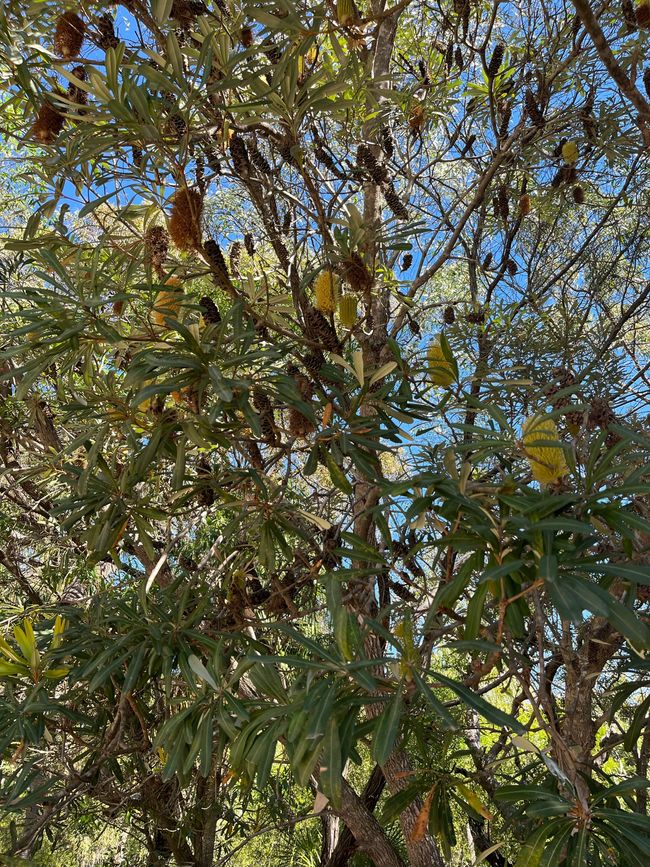
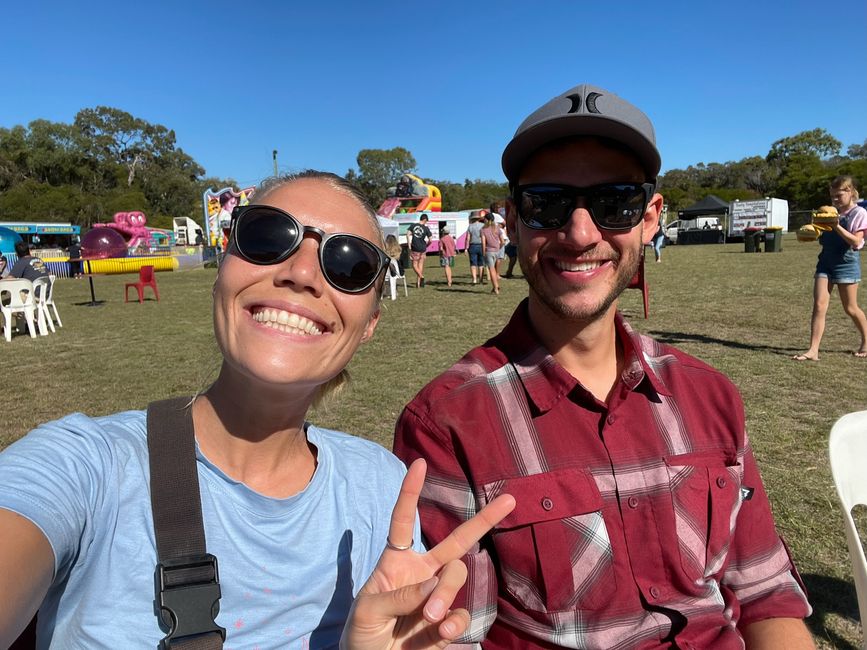
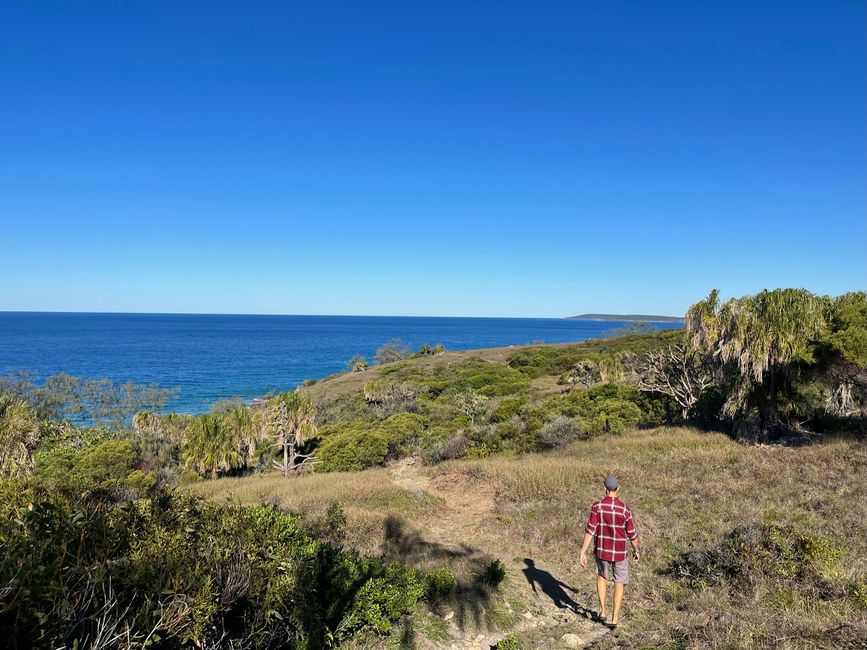
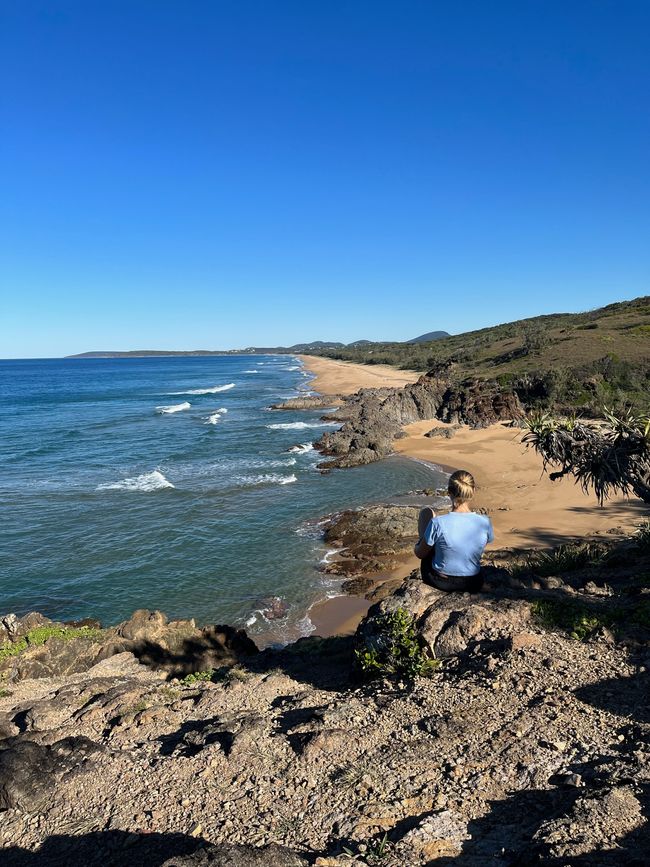
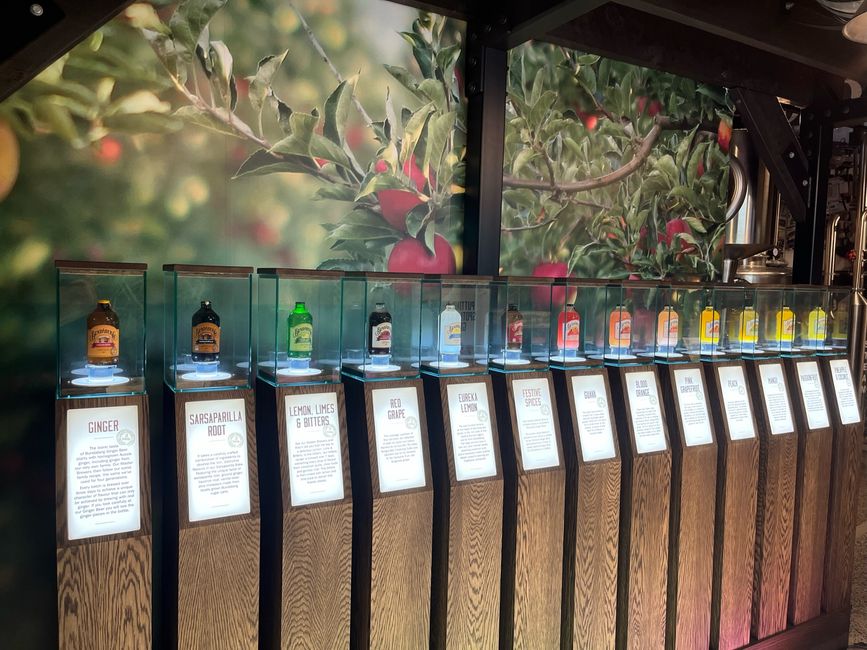
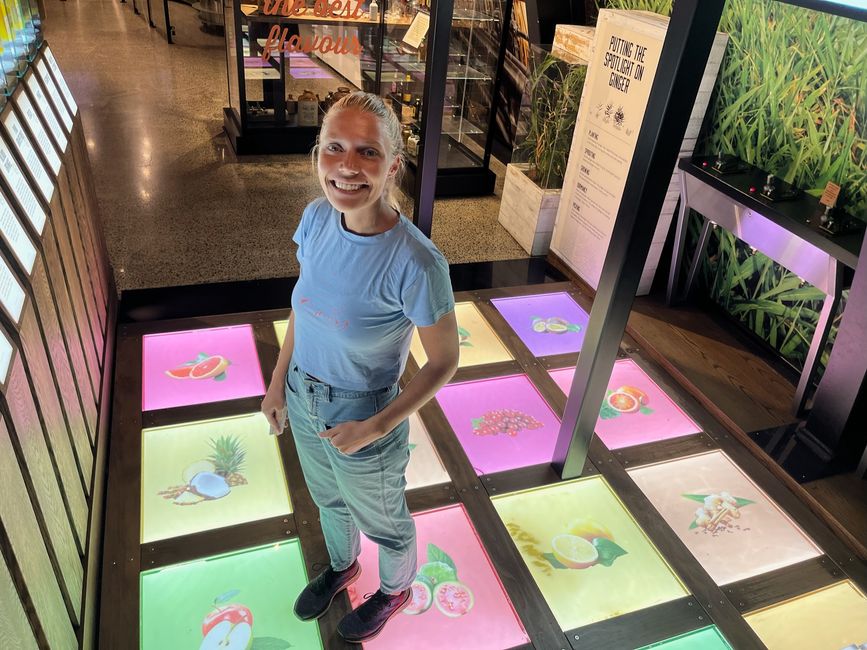
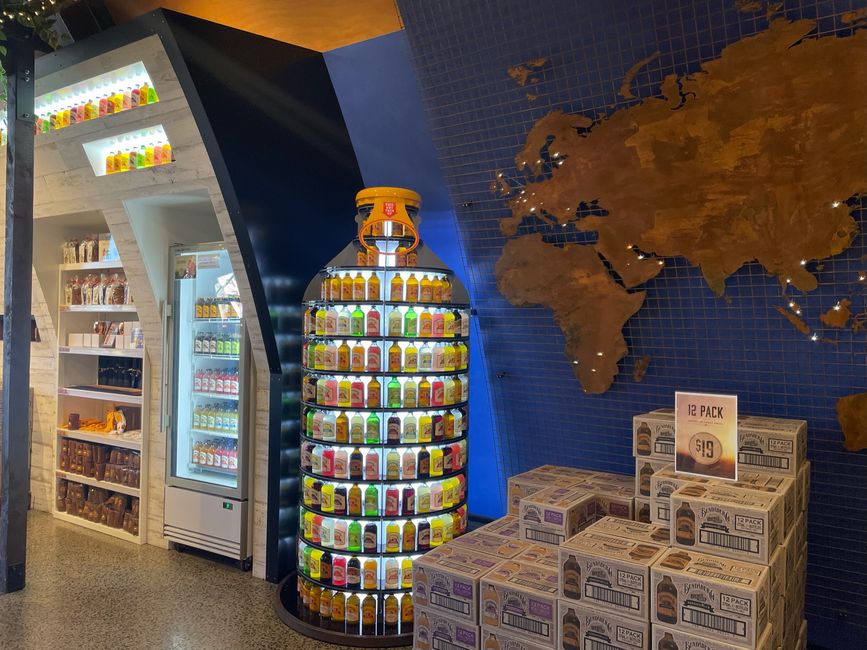
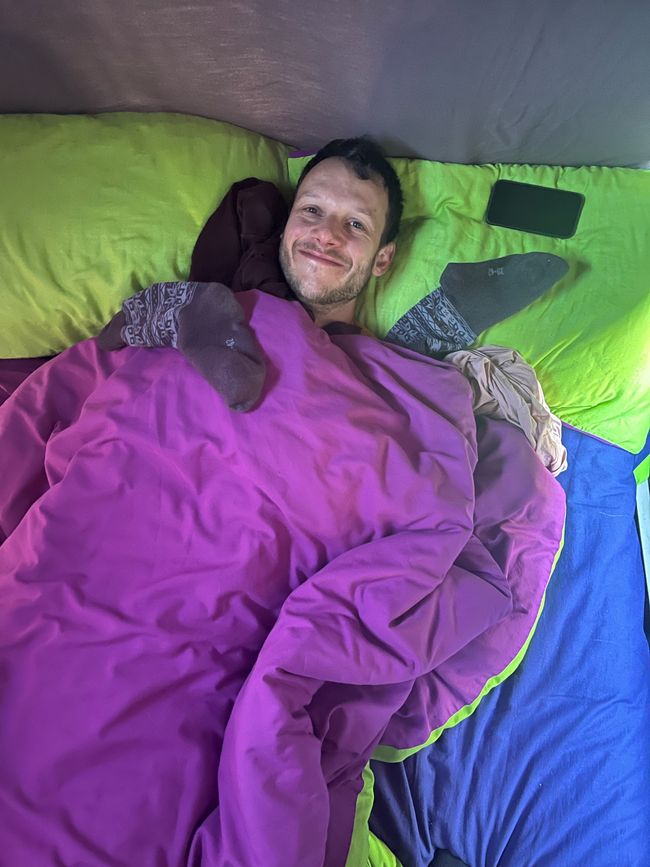
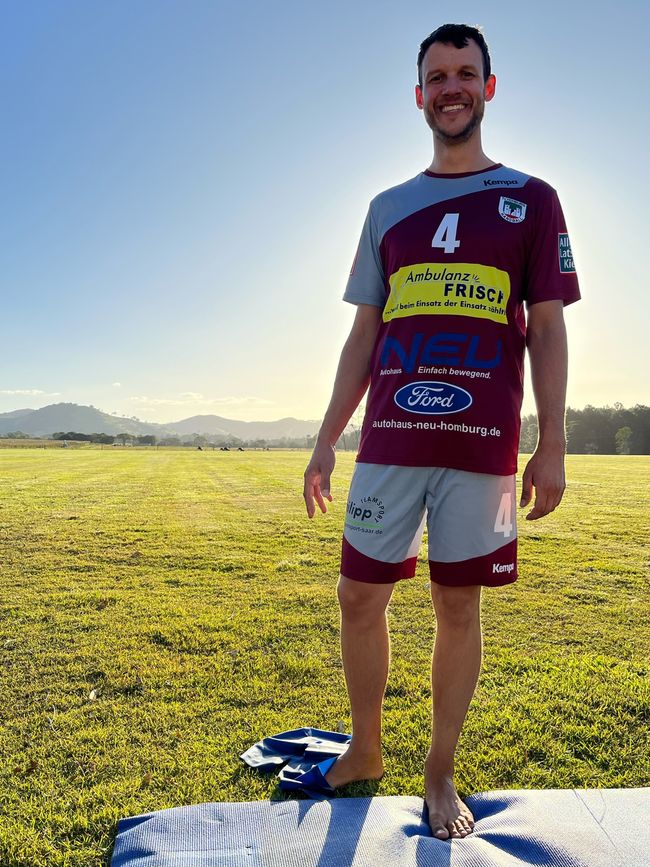
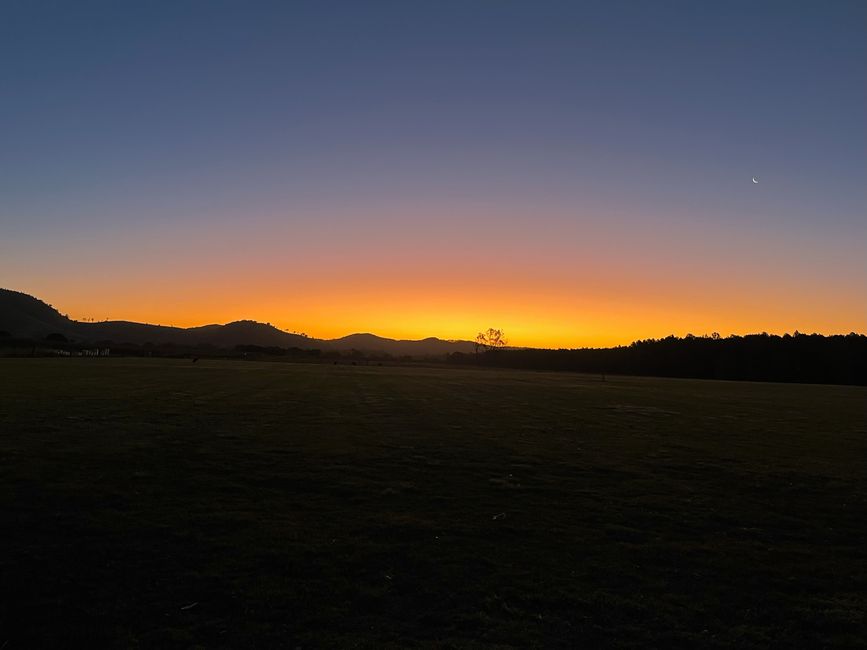
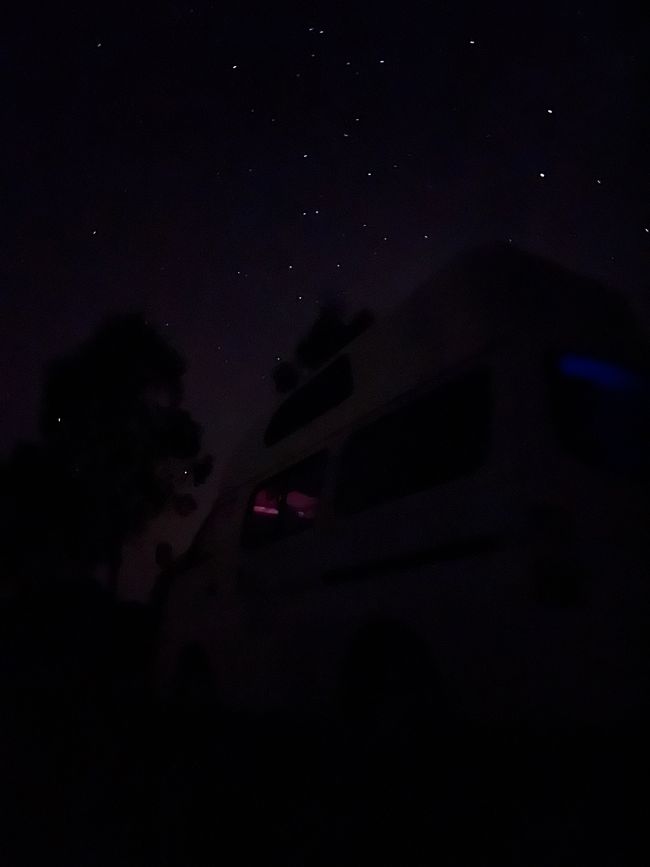
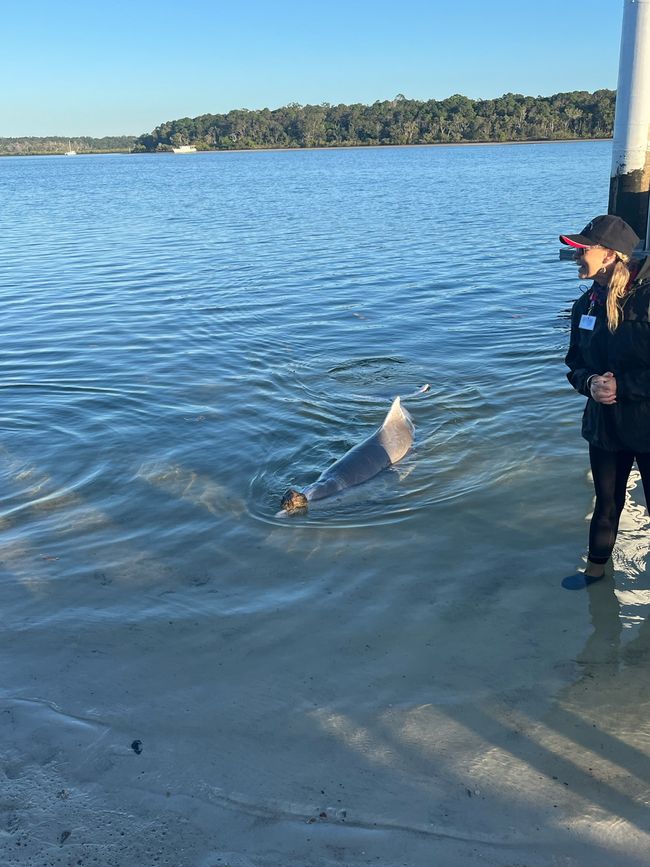
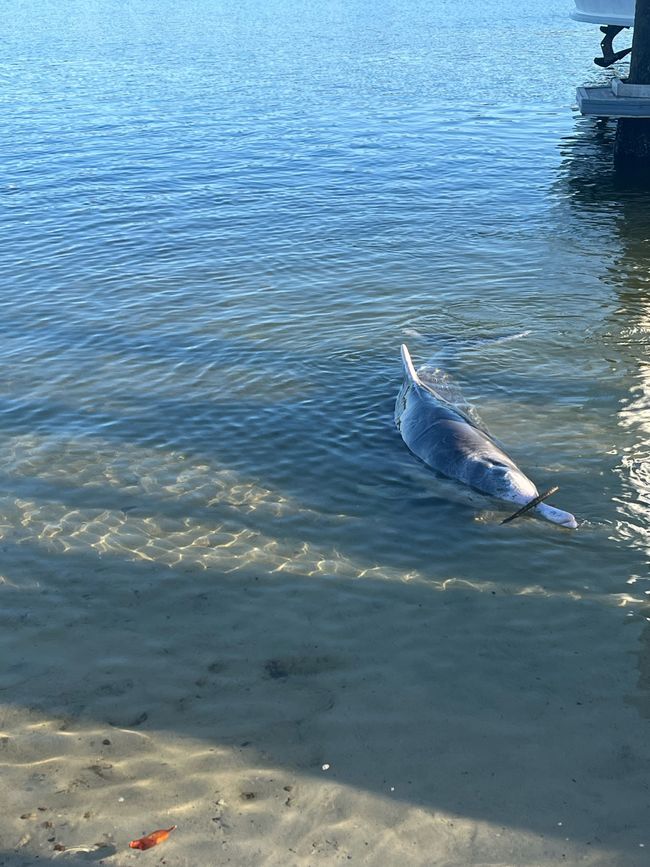
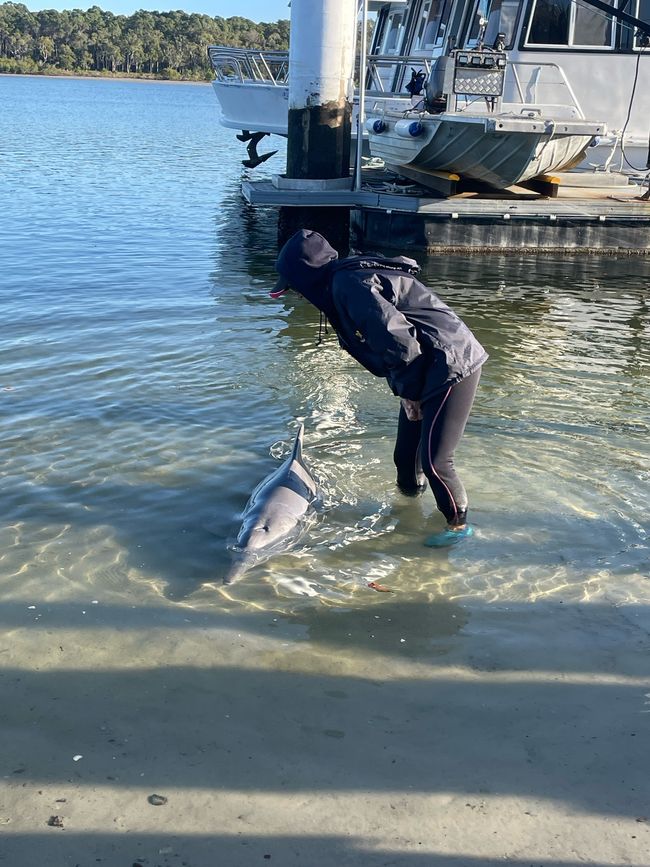
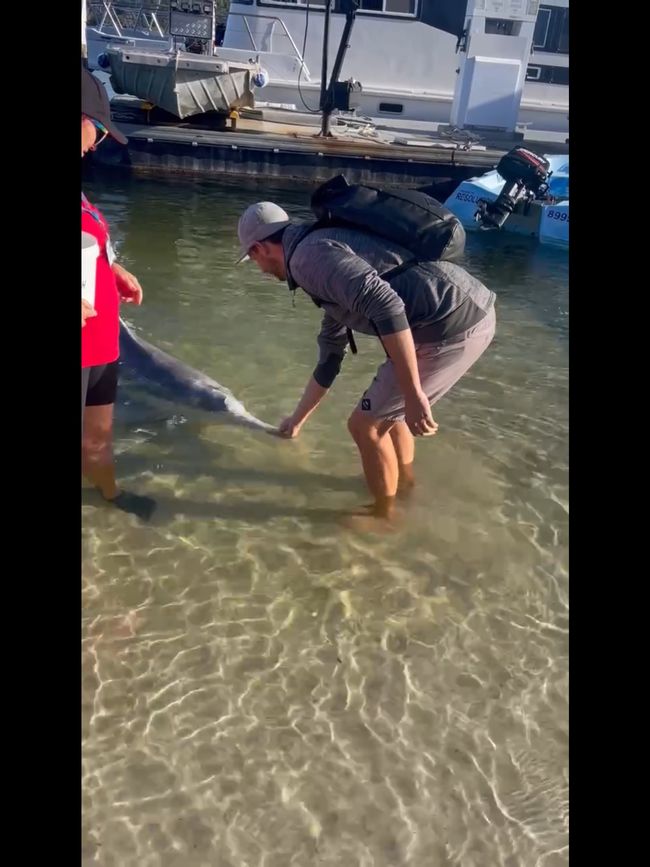
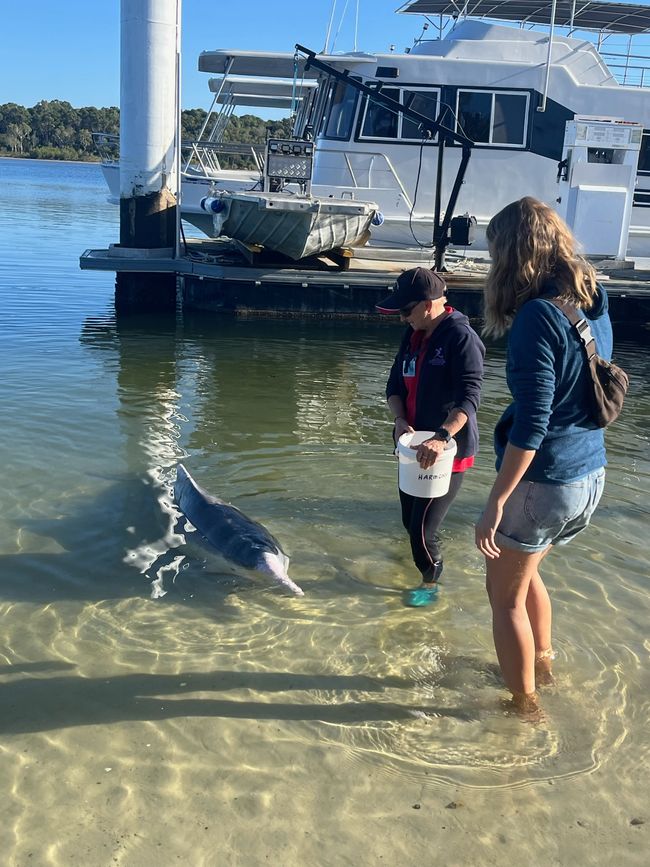
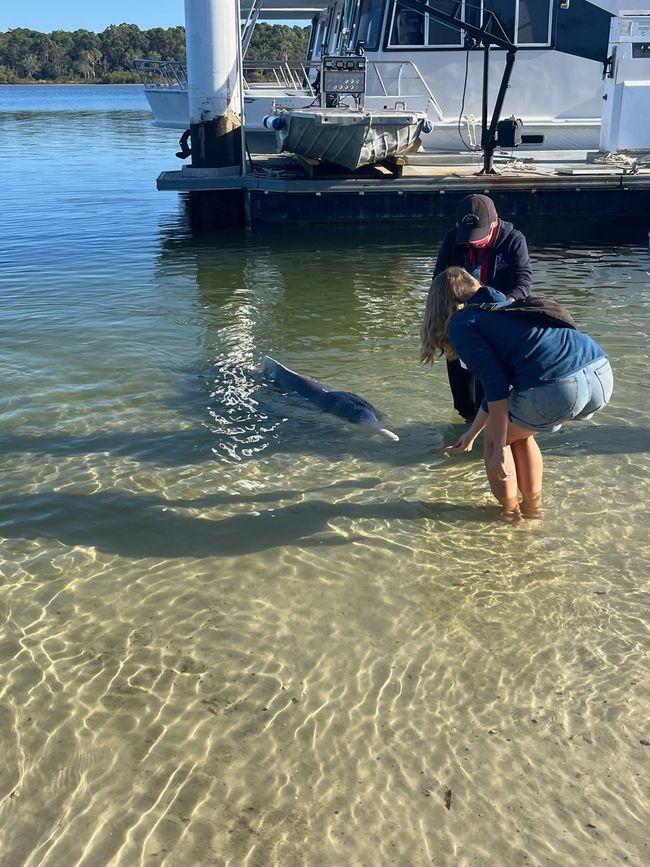
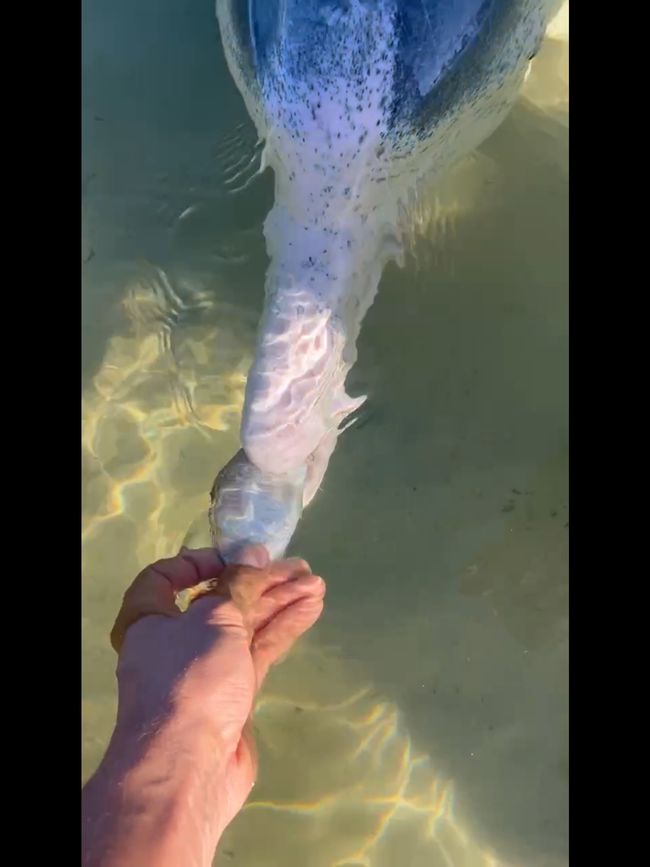
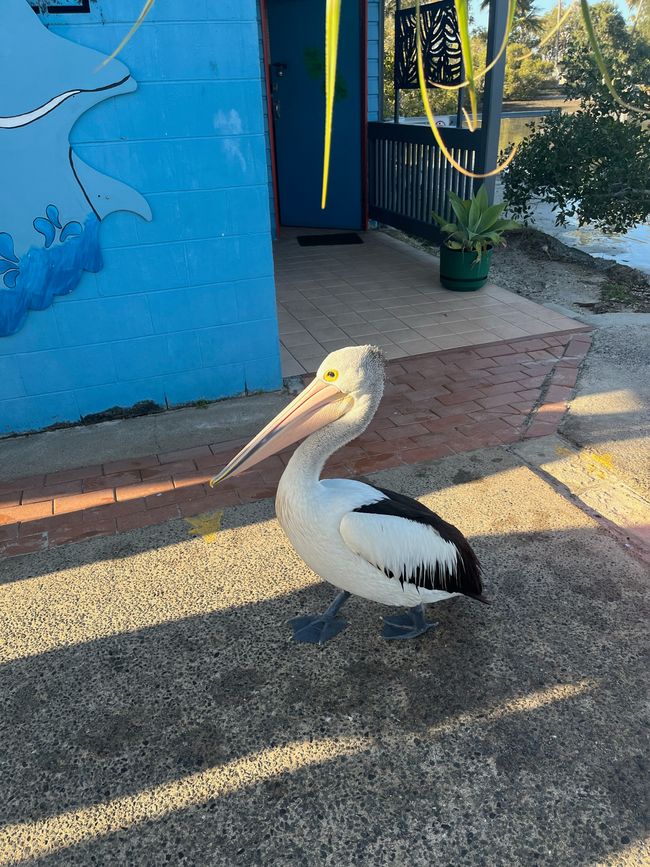
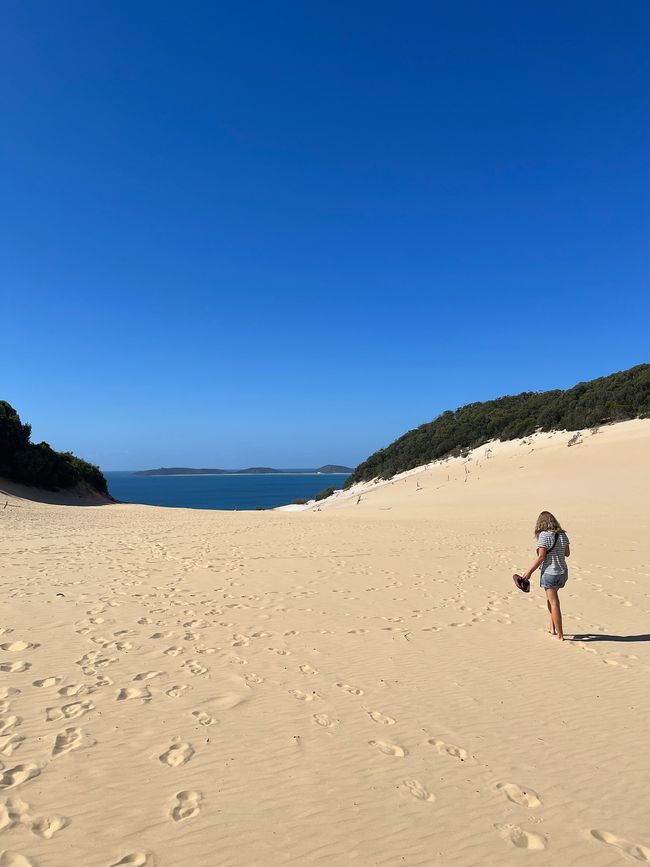
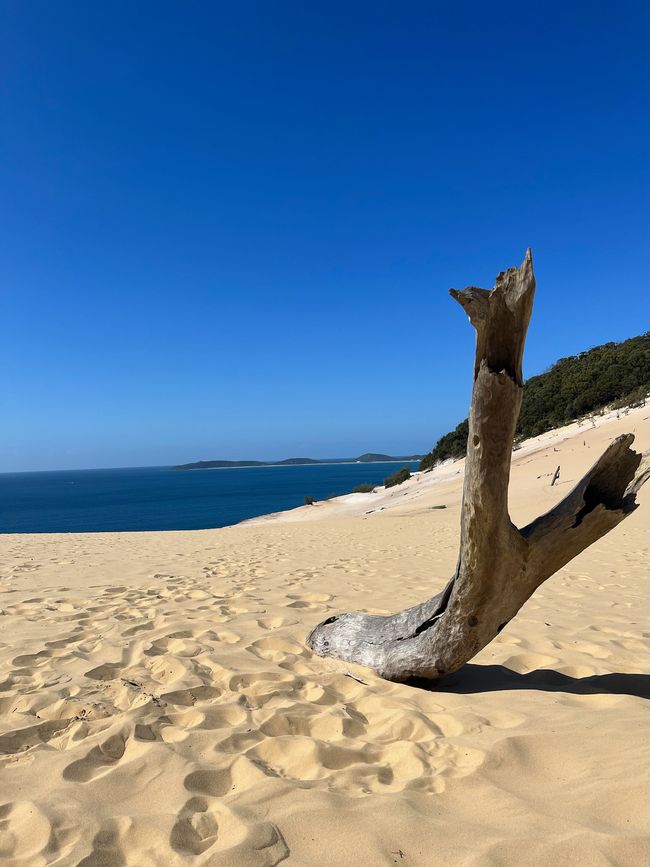
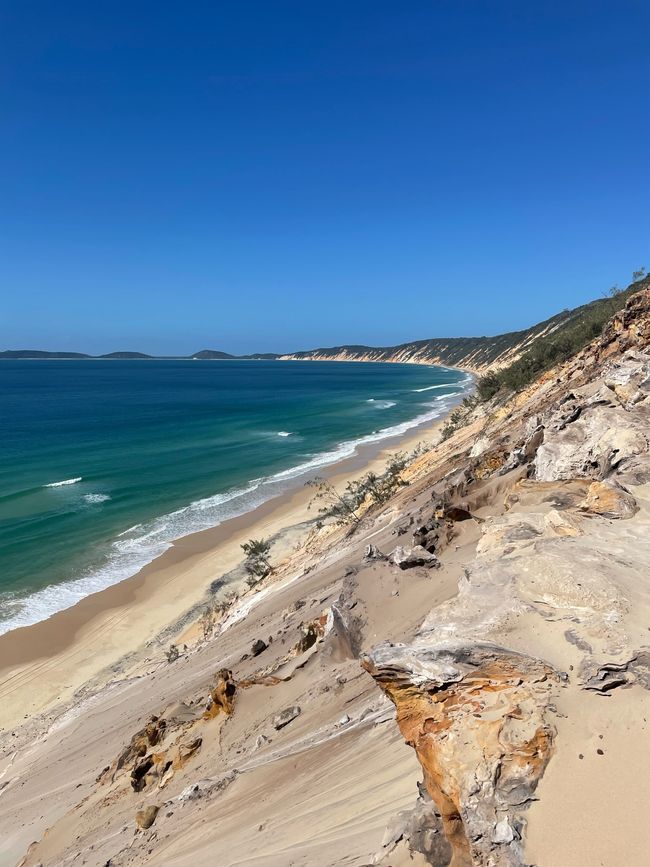
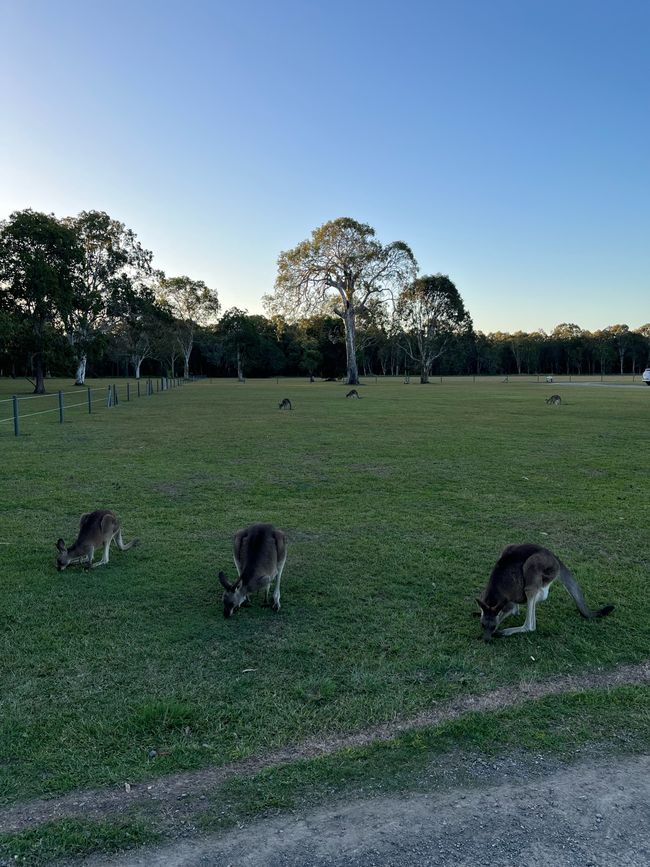
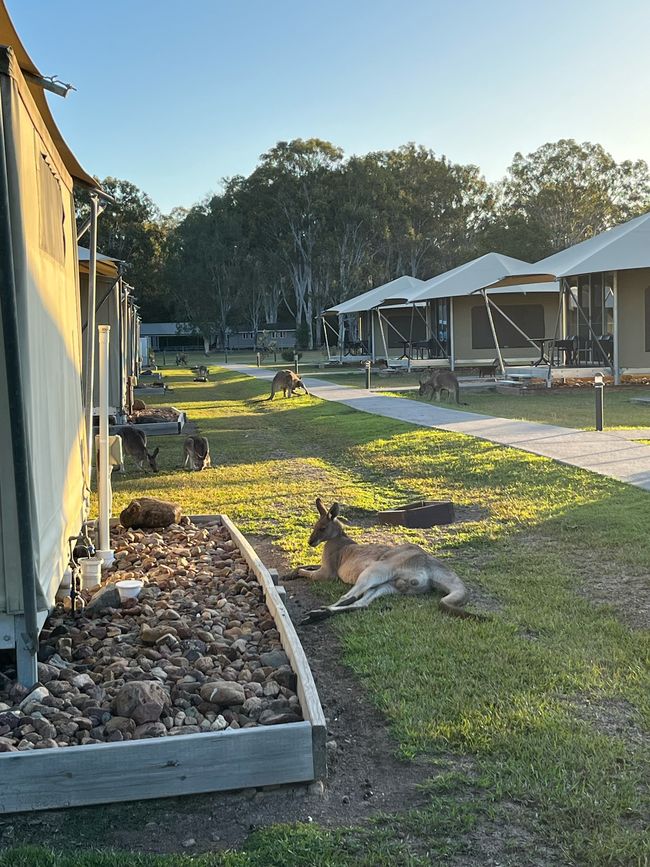
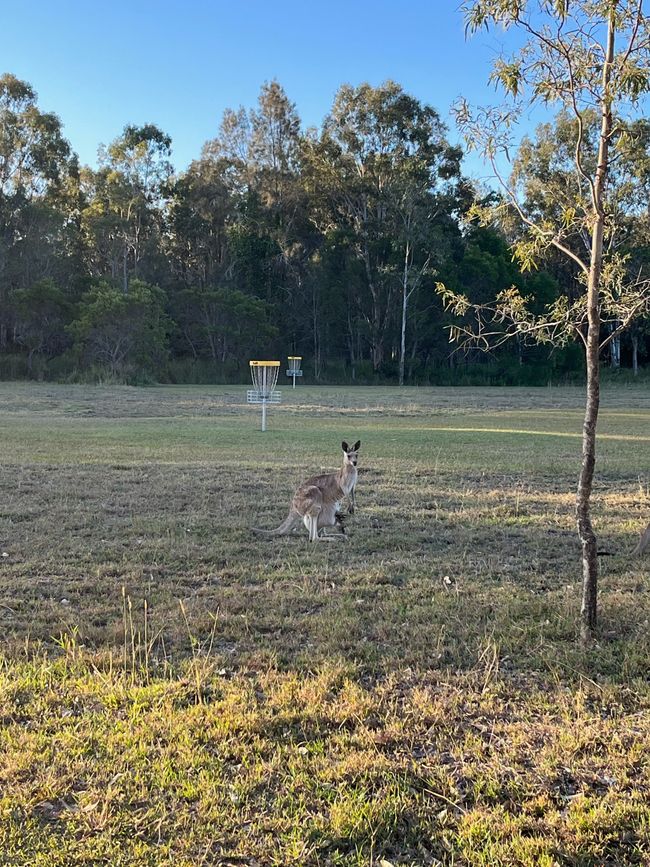
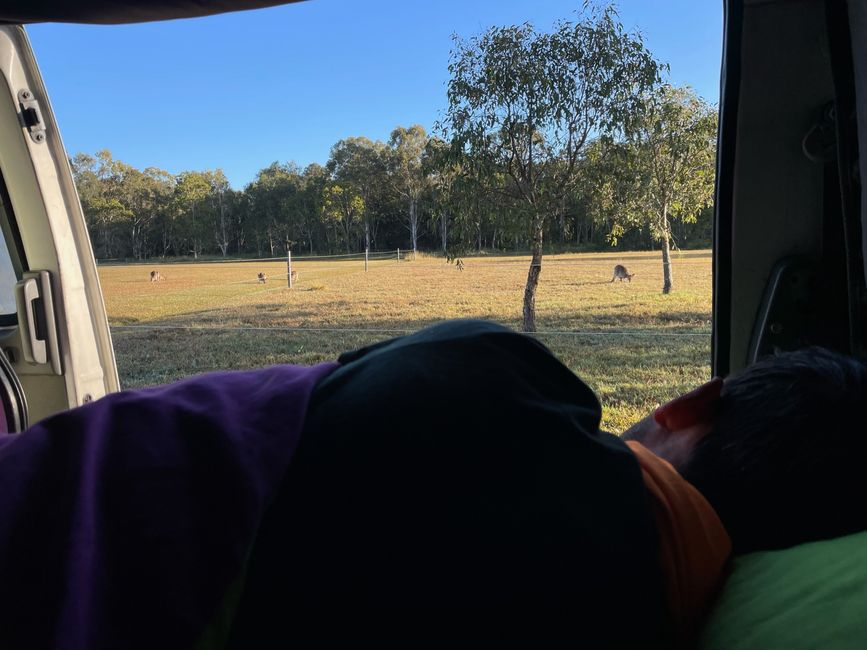
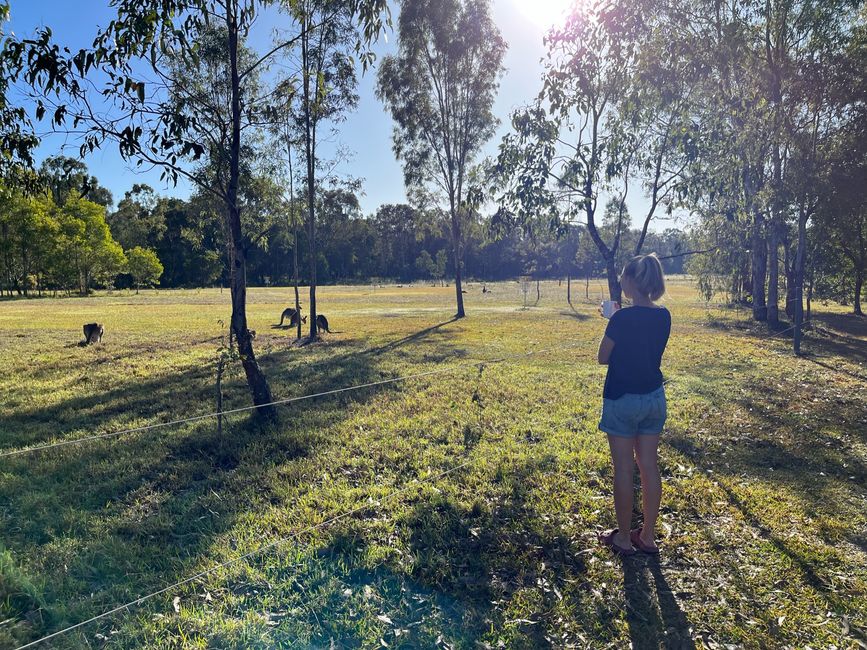
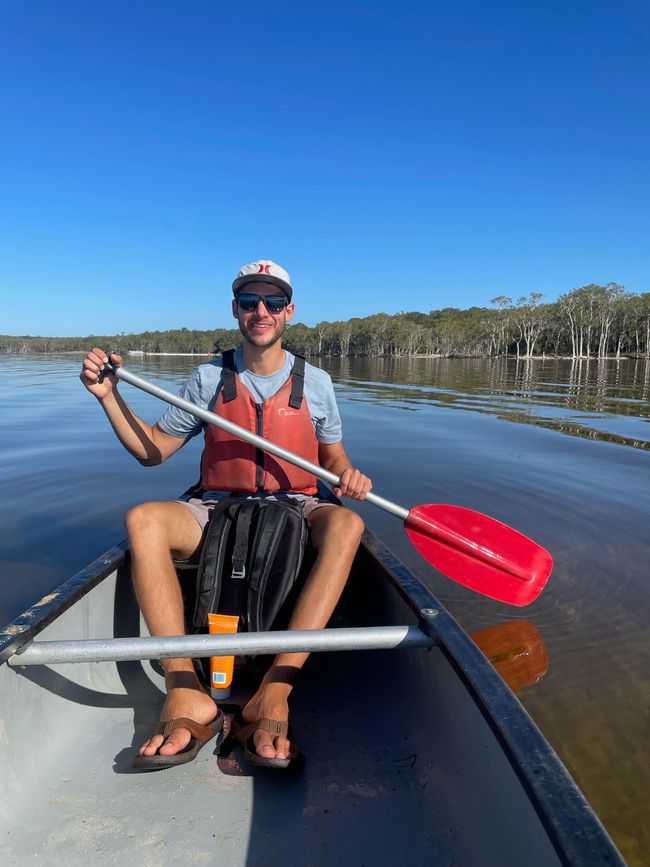
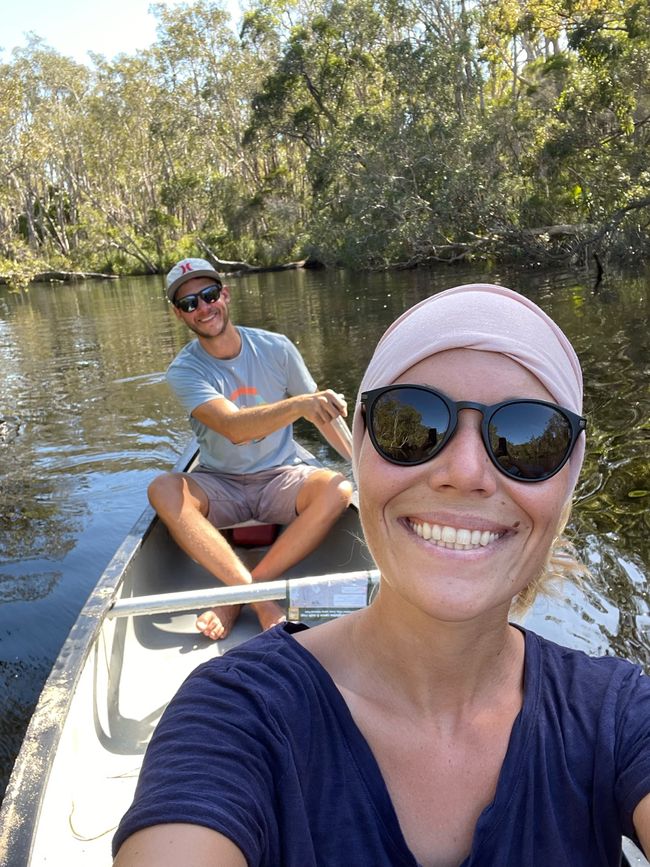
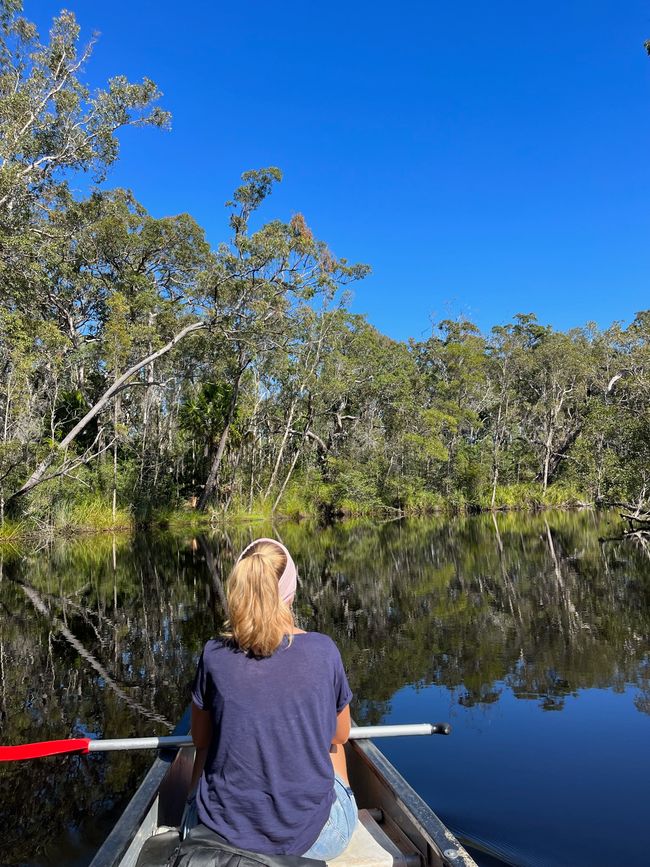
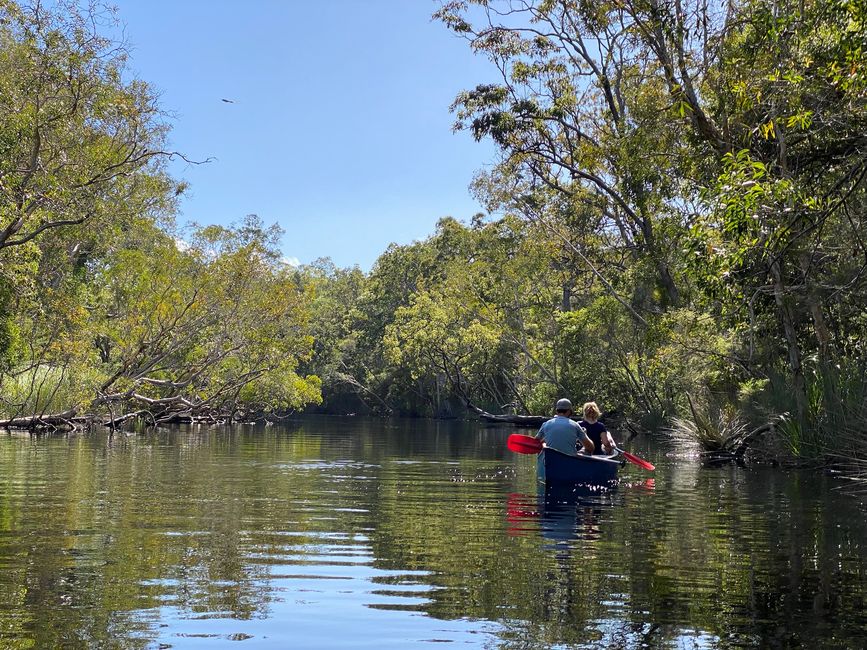
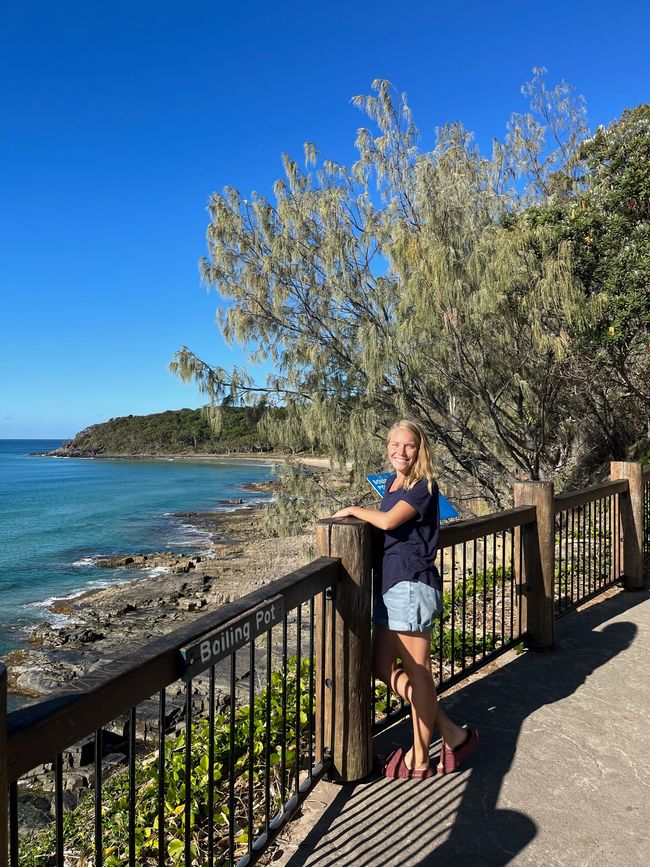
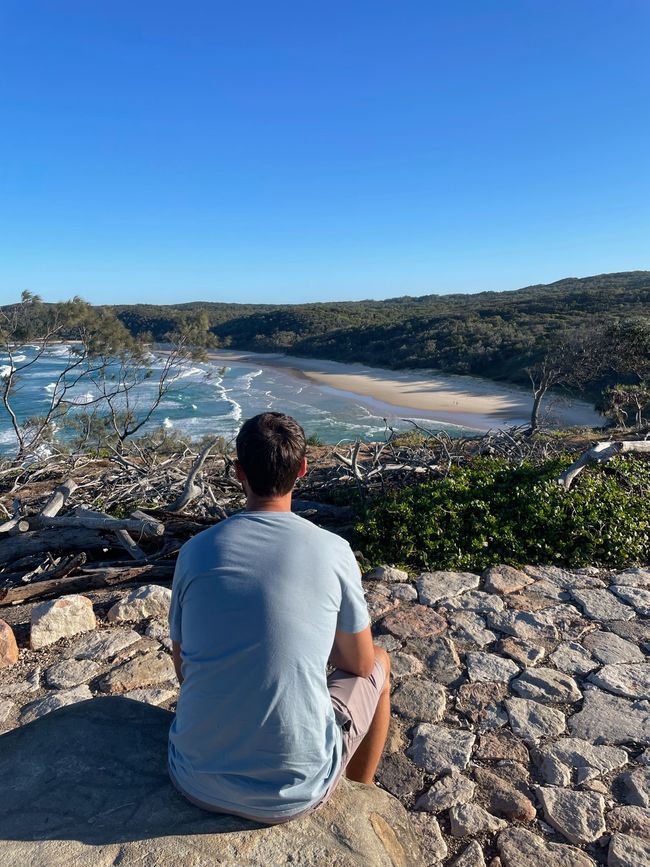
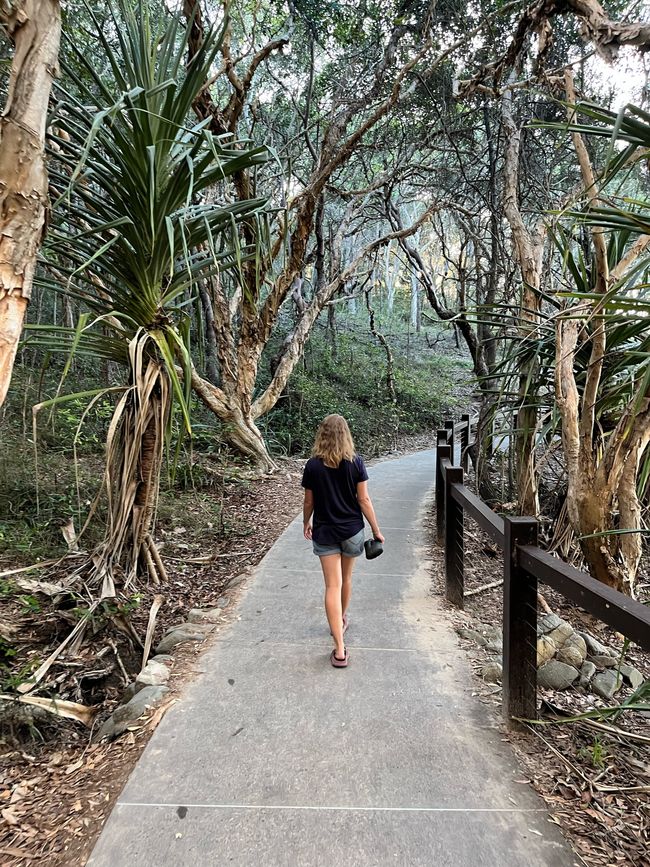
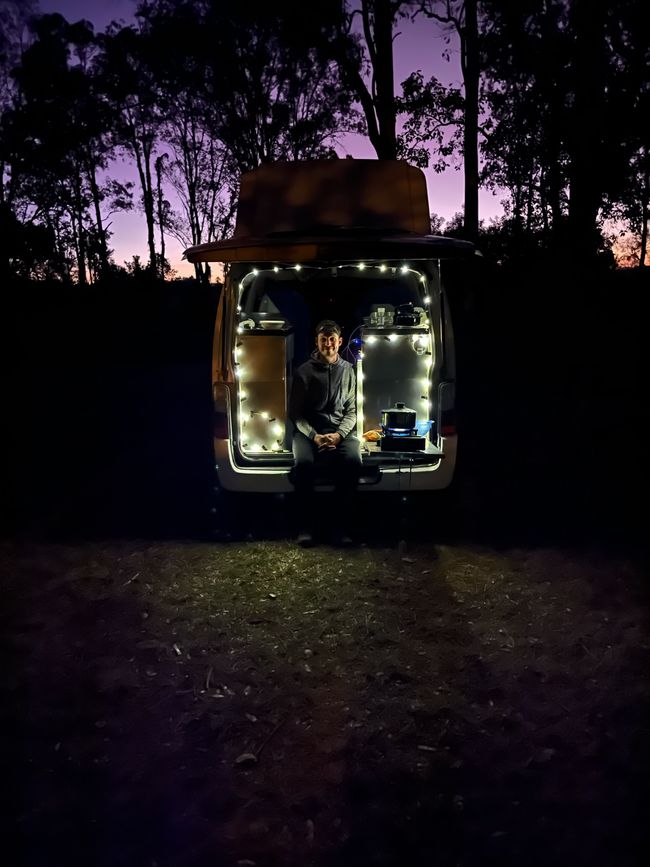
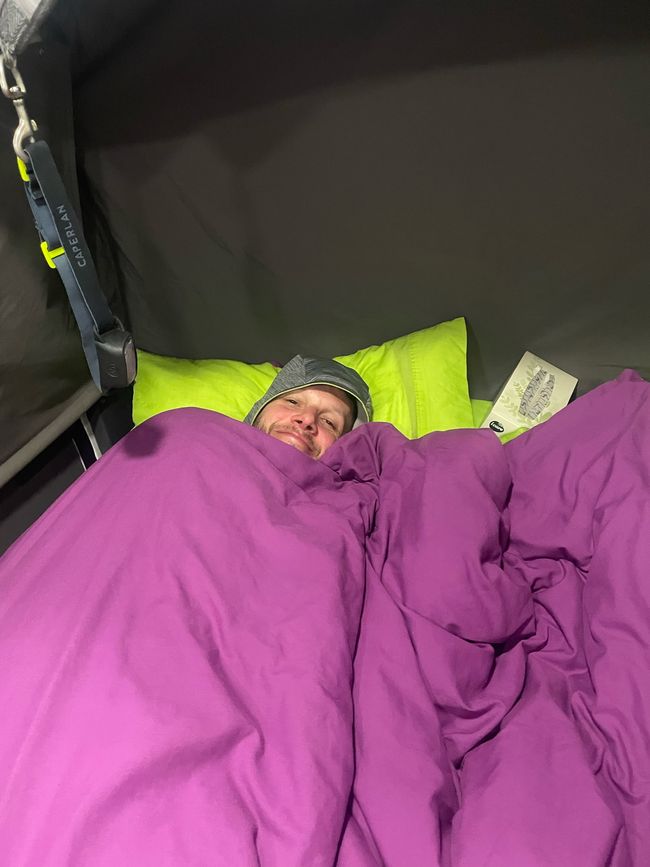
নিউজলেটাৰ চাবস্ক্ৰাইব কৰক
The next section of the east coast is called Sunshine Coast and so far it has lived up to its promise 🌞 For a change, we drove a longer distance and after about 7 hours we arrived in the small town of Agnes Water with a stopover. We first went to the tourist information because we didn't know exactly what to do here. We were recommended a small path and also learned that in the adjacent - even smaller - town of Seventeen Seventy (like the year) the annual festival in memory of the discovery by James Cook in May 1770 takes place. The path was only a few hundred meters long, but beautiful. It led through untouched bushland and looked like a magical forest. After that, we drove to Seventeen Seventy and strolled around the cute village festival, where there were carousels and a live band. Then we took a walk through nature and along a deserted beach, we almost got lost, tried to take a shortcut through the bush (unlike James Cook back then) and what was supposed to be a little walk turned into a slightly longer hike. So we once again arrived at our campsite at dusk, quickly cooked something and then snuggled up in the camper.
The next day we drove to Bundaberg, where the well-known Bundaberg Ginger Beer comes from. We did a tasting at the brewery - of course, everything is alcohol-free, after all, it was still in the morning 😁 - where we tried all 13 varieties and were allowed to take 6 bottles per person home at the end. From the original ginger beer to mango and blood orange, to a Christmas version that tasted like mulled wine, everything was there. Since all kinds of fruit can be grown in Australia, only natural ingredients are used and it tasted really delicious.
For the coming night, we had chosen a beautiful spacious campsite a bit outside. And guess who was waiting for us there on the grass: KANGAROOS! We positioned Lotte with a direct view of the kangaroo meadow and had the best view during our workout. When it got dark, the "roos", as the campsite owner called them, hopped into a nearby field and we enjoyed the beautiful starry sky. But then we quickly got into the camper because the nights here in southern Queensland have become bitterly cold.
The next morning the alarm clock rang early because we had something very special planned. After extensive research in the Googlemobile, we decided to participate in a dolphin feeding in Tin Can Bay. A group of volunteers has organized there and invites everyone to learn more about the rare Australian humpback dolphins and, if desired, to help with the feeding. These are wild dolphins that have been coming to the bay for decades. It all started in the 1950s when a severely injured dolphin swam to Tin Can Bay and was nursed back to health by the fishermen who fed it. After he recovered, he swam back into the ocean. After some time, he came back together with his family, and thus a friendship developed between animal and human based on mutual trust and fish snacks. The volunteer organization is subject to strict regulations, for example, feeding is only allowed in the morning and only a small amount is given. The dolphins are not intentionally touched and they are always checked for injuries. In case of doubt, a veterinarian is sometimes consulted, although most injuries - as in nature - heal by themselves. The animals live about 18km away in the ocean and almost every day they voluntarily decide to visit their human friends. If they were not fed, nothing would change for the dolphins, but the years of trust and the education of the visitors about this endangered species of dolphins would be lost. Different members of the family always come, sometimes the females even bring their newborn babies with them, and on some days none of them come - depending on what is happening in the ocean. We were lucky because three dolphins and even a pelican, who unsuccessfully tried to steal a fish, came. First, Patch, an older male, who always brings small gifts and hopes to get extra fish - but he only gets a few fish earlier from his share - this time he brought stones and a stick. This behavior is usually shown by the males to impress females, but usually with seaweed or other useful things. Then Luna came, a 5-year-old juvenile who was born during a full moon and therefore has his name. In the end, Harmony also joined, also a male and the head of the family, who had impressive bite marks from a shark on his back. The pelican Alwin also tried to steal a fish but failed and heroically pooped in front of the audience. We actually only paid for one feeding, but then an older couple gave us their tickets and afterwards the team leader asked if we wanted to go down to the beach again. So in total, we were even allowed to feed 4 fish to Patch and Harmony. At one point, Patch's snout accidentally touched our fingers and caused Jana a tingling sensation in her whole arm. It was such a wonderful experience and, as we think, a great example of how to interact with wild animals without confining or restricting them.
With ice-cold feet and a warm feeling in our hearts, we had breakfast and then headed to Rainbow Beach. Here we walked on a large sand dune, which ends in a forest on one side and steep cliffs on the other side, from where you have a great view of the beach below. We also received a call from the camper rental company, who refunded us two days because of the repairs at the beginning!
After a little nap on the beach, we drove to our next campsite, which was located in the Noosa Ecoresort. And as soon as we arrived, the next group of kangaroos was waiting for us, and this time they were really everywhere! As we found out, a kangaroo's day mostly consists of grazing and lying around. No wonder the meadow here was so neatly trimmed, they are the perfect lawnmowers! We walked around and enjoyed the long-awaited kangaroos. Some females also had babies in their pouches, some of which stuck their heads out and had a snack from there. The next morning, we could even watch them from our bed. We couldn't get enough of them! For the morning, we rented a canoe at the resort and paddled through the so-called Everglades. There are probably only two Everglades in the world, and here in Noosa, they are the only ones without alligators - sympathetically! First, we paddled across a large lake, and then we went through the slightly narrower river arms through the beautiful green nature. Even though we could have jumped into the water here because there were no alligators, we settled for dipping our feet in because the river was ice-cold. On the way back, we had a headwind, so the whole tour became a little workout. After a thorough shower, we packed our things and drove on to Noosa Heads, a small but very touristy and cute town on the coast. Here we walked a part of the so-called Coastal Walk, which leads through the rainforest and along the coast. We really liked the Noosa area! In the evening, after extensive research, we found a quiet little campsite where it was a bit warmer at night and the sky turned purple after sunset.
The next day we went to a beach where we planned our upcoming trip to the USA in September, and it was also good that we didn't have much planned because Philip felt sick all day. In the afternoon, we took a COVID test and voilà: positive. Thank goodness we had bought a hot water bottle beforehand to better endure the frosty nights, and we can keep our distance from other people quite well in the camper. Hopefully, it will pass quickly and Jana won't get infected 🙈
নিউজলেটাৰ চাবস্ক্ৰাইব কৰক
উত্তৰ
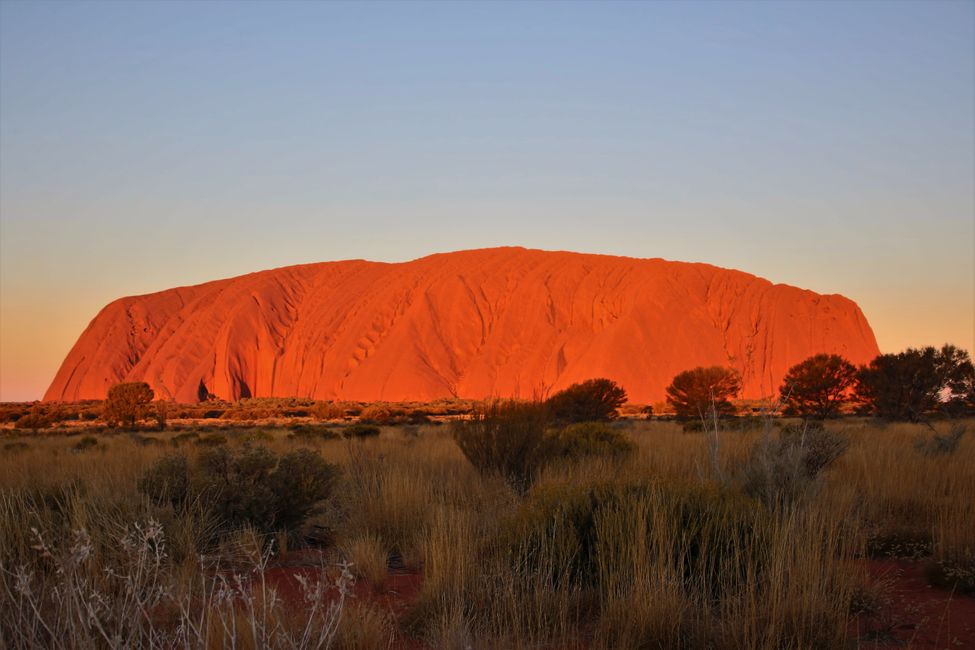
ভ্ৰমণৰ প্ৰতিবেদন অষ্ট্ৰেলিয়া
